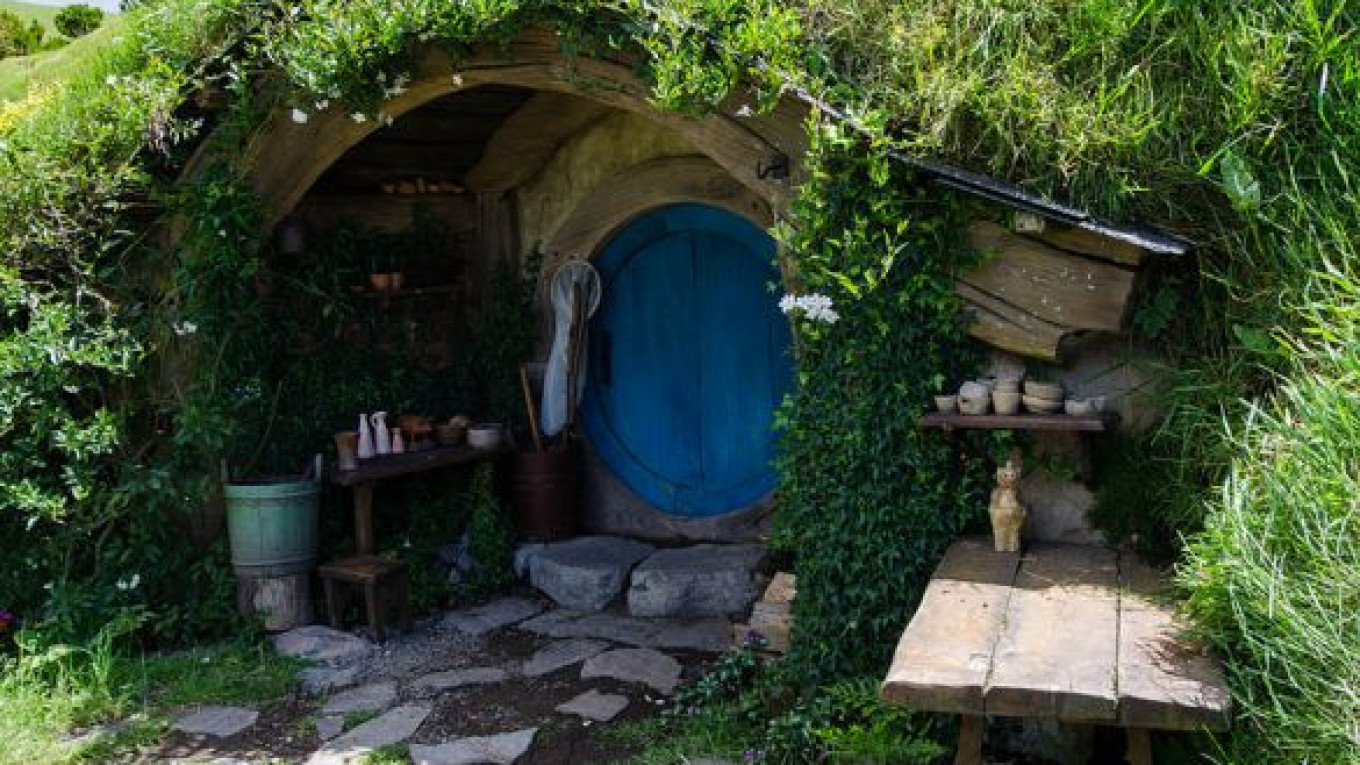Though much of "The Lord of the Rings" trilogy tells of adventures away from the pastoral and idyllic Shire, a district in the Moscow region hopes travelers will pay to stay in a hobbit village modeled on the fantasy world.
A presentation available on the Zaraisky district's website includes a proposal for the hobbit village as well as 11 other projects aimed at attracting tourists to the area.
The proposed settlement, presumably inspired by the town of small, hairy-footed people described in British author J.R.R. Tolkien's world of Middle Earth, would occupy 64,000 square meters along the Osyotr River.
The slides detailing the project, which use stills from "The Lord of the Rings" films and photos of houses designed to look like hobbit dwellings, say the village could accommodate between 50 and 60 visitors and would be designed for families and for use as corporate retreats.
Guests could also get involved in the "life of gnomes" through participation in "stylized games" centered around battles and adventures. The presentation promotes the settlement as an escape from urban living.
Hobbit homes, as described by Tolkien and represented in Peter Jackson's film adaptations of the books, generally include circular doors and are built into and under hills.
The presentation did not include information on the size of the homes, however, hobbits are normally thought of as about one meter tall.
Other projects proposed for the Zaraisky district include building a hunters' lodge, a hostel and a sleep clinic.
The district hopes to increase its revenue from the hospitality industry to 420 million rubles ($11.9 million) per year.
The Moscow region has increasingly adopted plans to provide amusement for city dwellers lacking entertainment. Last year City Hall reportedly agreed to the construction of a historical reenactment theme park roughly analogous to France's Puy du Fou.
A Message from The Moscow Times:
Dear readers,
We are facing unprecedented challenges. Russia's Prosecutor General's Office has designated The Moscow Times as an "undesirable" organization, criminalizing our work and putting our staff at risk of prosecution. This follows our earlier unjust labeling as a "foreign agent."
These actions are direct attempts to silence independent journalism in Russia. The authorities claim our work "discredits the decisions of the Russian leadership." We see things differently: we strive to provide accurate, unbiased reporting on Russia.
We, the journalists of The Moscow Times, refuse to be silenced. But to continue our work, we need your help.
Your support, no matter how small, makes a world of difference. If you can, please support us monthly starting from just $2. It's quick to set up, and every contribution makes a significant impact.
By supporting The Moscow Times, you're defending open, independent journalism in the face of repression. Thank you for standing with us.
Remind me later.






